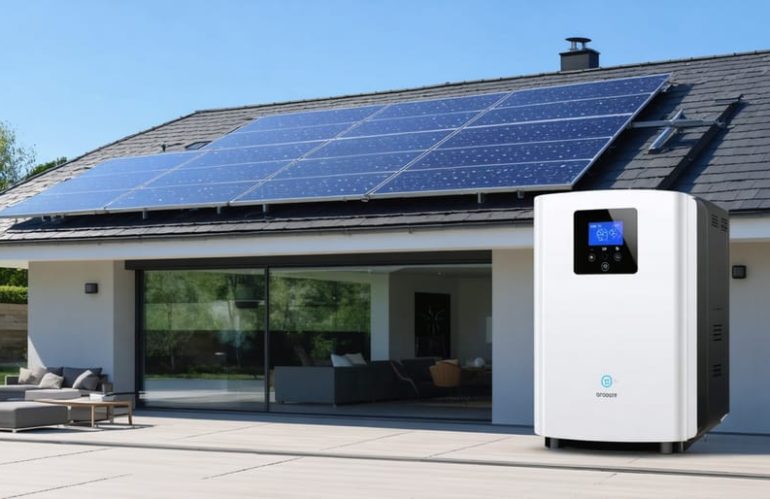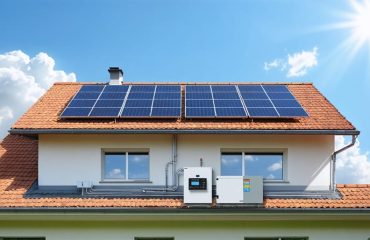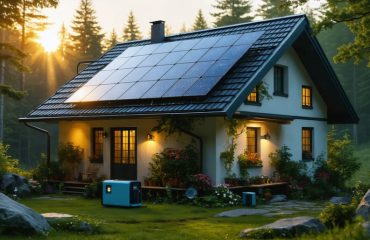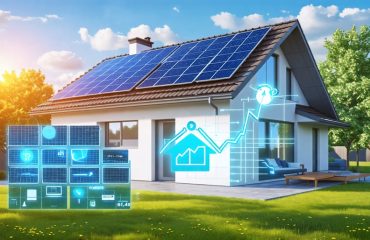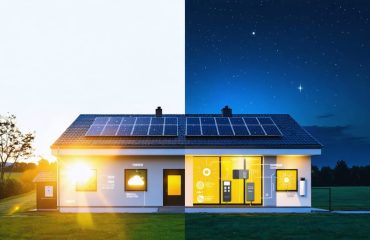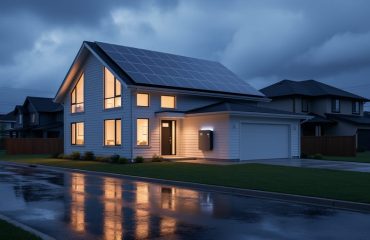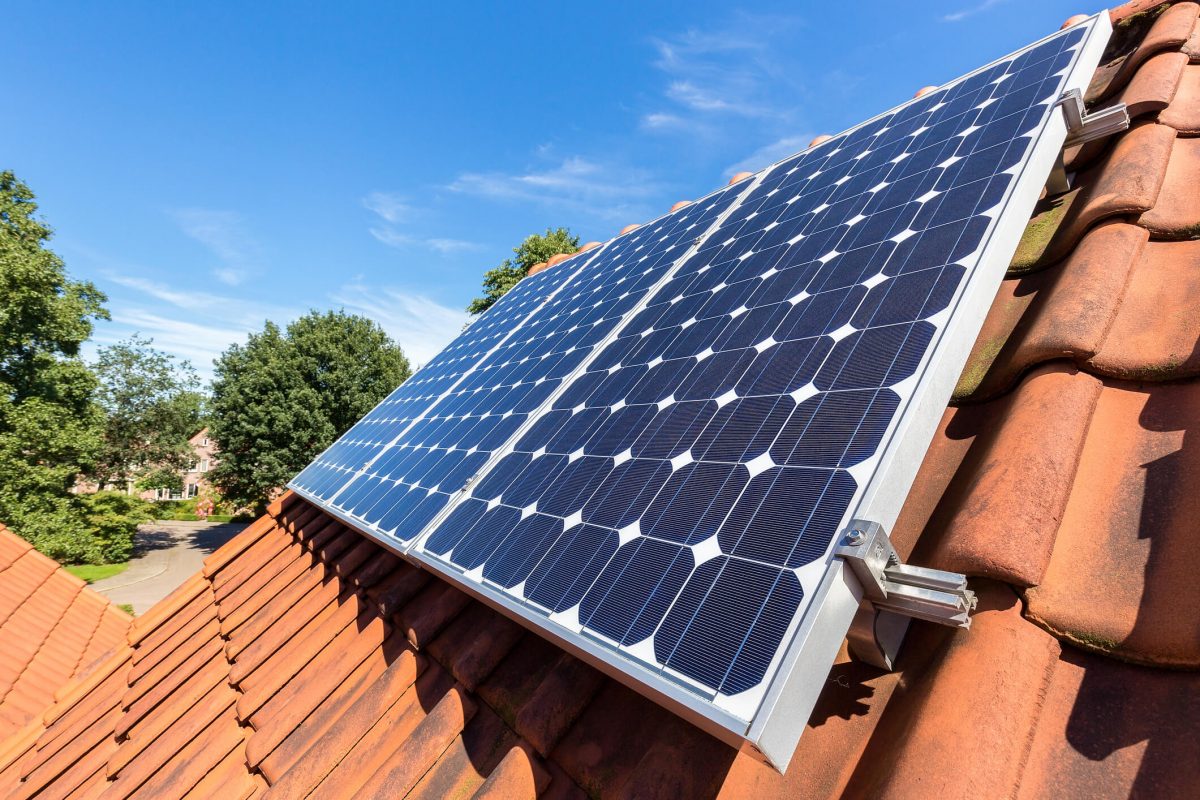Energy storage units are revolutionizing how we think about power consumption and grid independence. These innovative systems, ranging from compact home batteries to utility-scale solutions, serve as the missing link between intermittent renewable energy sources and reliable, round-the-clock power access. By capturing excess energy during peak production periods and releasing it when needed most, storage units offer homeowners unprecedented control over their energy usage while providing crucial grid stability.
Today’s energy storage technology has evolved far beyond simple batteries, incorporating smart management systems that automatically optimize power flow based on usage patterns and electricity rates. For homeowners, this translates into tangible benefits: reduced electricity bills, protection against power outages, and the ability to maximize solar panel investments. As electricity costs continue to rise and grid reliability faces new challenges, energy storage units have emerged as a practical solution for sustainable, cost-effective power management in modern homes.
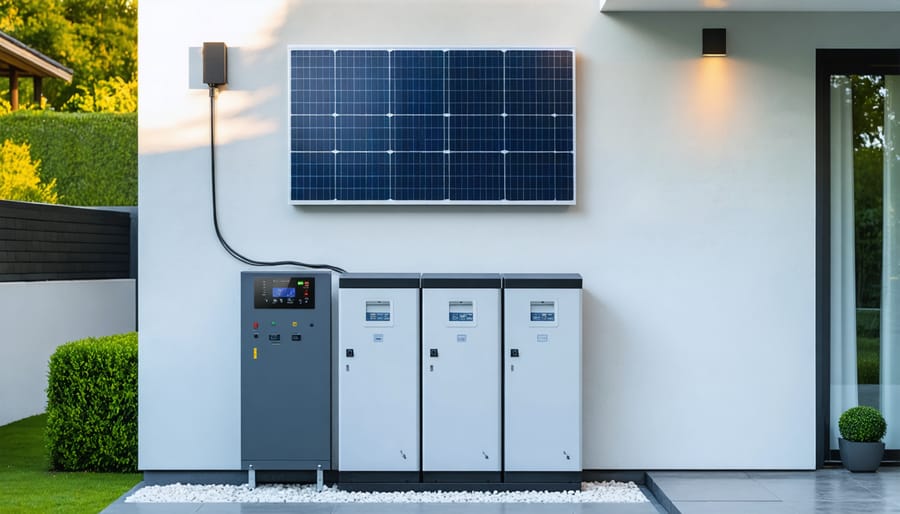
How Energy Storage Units Transform Your Home Power
24/7 Power Access
One of the most significant advantages of energy storage units is their ability to provide continuous power access throughout the day and night. While solar panels only generate electricity during daylight hours, storage units act like a personal power bank for your home, capturing excess energy during peak production times and releasing it when needed. This means you can run your appliances, keep your lights on, and maintain comfortable temperatures even after sunset or during cloudy days.
The system automatically switches between direct solar power and stored energy, ensuring seamless operation without any interruption. During the day, your home uses solar-generated electricity while simultaneously charging the storage unit. As evening approaches or when solar production decreases, the storage unit takes over, providing reliable power from its reserves. This round-the-clock availability not only enhances your energy independence but also protects against grid outages and reduces reliance on utility companies.
Grid Independence
Energy storage units offer homeowners a powerful path to energy independence, reducing or even eliminating reliance on traditional utility companies. By storing excess energy generated during peak production times, these systems provide a reliable backup power source during grid outages, ensuring your home stays powered when others go dark. This enhanced reliability is particularly valuable during severe weather events or unexpected utility failures.
Beyond emergency backup, energy storage allows you to maximize self-consumption of your generated power, potentially reducing your monthly utility bills significantly. You can store energy when rates are low and use it during peak pricing periods, effectively managing your energy costs. Many homeowners find peace of mind knowing they’re protected from rising utility rates and grid instability.
The independence provided by energy storage also contributes to a more resilient and sustainable energy future, where homes can operate as mini power stations, less vulnerable to external disruptions.
Financial Benefits That Add Up
Peak Rate Avoidance
Energy storage units serve as a powerful tool for managing electricity costs by helping homeowners avoid expensive peak rates. During peak hours, typically in the late afternoon and early evening, utility companies often charge premium rates for electricity usage. Storage units allow you to store energy when rates are low and use it when rates are high, effectively shifting your consumption to more affordable time periods.
Think of it as buying groceries in bulk when they’re on sale – you’re stocking up when prices are lower to avoid paying premium prices later. Your storage unit can automatically charge during off-peak hours (usually overnight) when electricity rates are at their lowest, then supply your home with this stored energy during peak rate periods.
This strategic energy management can lead to significant savings on your monthly utility bills. Many homeowners report saving 30% or more on their electricity costs by using storage units for peak rate avoidance. Additionally, some utility companies offer special time-of-use rate programs that make this approach even more financially rewarding.
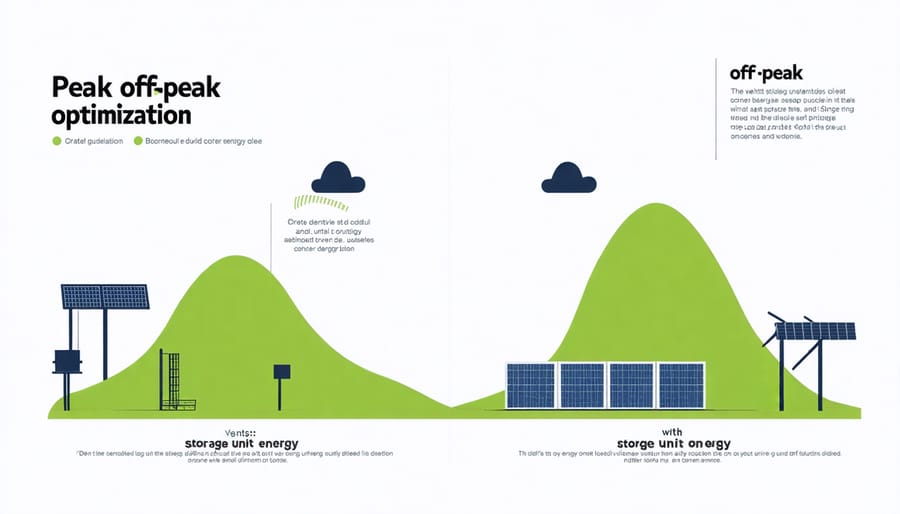
Smart Energy Management
Modern smart energy management systems take the guesswork out of optimizing your home’s energy consumption. These intelligent systems automatically monitor and adjust energy usage based on your household patterns, weather forecasts, and electricity rates. When paired with your energy storage unit, they can decide the best times to store or use power, maximizing your savings and efficiency.
Think of it as having a personal energy assistant that knows exactly when to charge your battery storage during off-peak hours and when to use that stored energy during expensive peak periods. The system can also predict your energy needs based on historical usage data and upcoming weather conditions, ensuring you always have enough power without waste.
These automated systems can integrate with your smart home devices, allowing you to monitor and control your energy usage through a simple smartphone app. You’ll receive real-time updates about your energy consumption, storage levels, and potential savings, helping you make informed decisions about your power usage while reducing your carbon footprint and monthly bills.
Environmental Impact
Carbon Footprint Reduction
Energy storage units play a crucial role in reducing your carbon footprint by maximizing the use of renewable energy sources like solar and wind power. When your solar panels generate excess electricity during sunny days, instead of letting it go to waste or sending it back to the grid, storage systems capture and save this clean energy for later use. This means you’ll rely less on grid power, which often comes from fossil fuel sources.
By storing renewable energy, you can power your home with clean electricity even when the sun isn’t shining or the wind isn’t blowing. This significantly reduces your household’s carbon emissions and dependence on non-renewable energy sources. A typical home energy storage system can help prevent several tons of carbon dioxide emissions annually – equivalent to taking a car off the road for months.
Additionally, energy storage supports the broader adoption of renewable energy by making these clean power sources more reliable and practical for everyday use.
Clean Energy Optimization
Energy storage units are the key to maximizing your solar power system’s potential. During peak sunlight hours, your solar panels often generate more electricity than you can immediately use. Without storage, this excess energy gets sent back to the grid, potentially at lower compensation rates. A storage unit captures this surplus power, allowing you to use it when you need it most – like during evening hours or cloudy days.
Think of it as a personal energy bank where you save your solar “deposits” for later use. This capability not only helps you become more energy independent but also reduces strain on the power grid during peak demand times. Many homeowners find they can cover up to 80% of their daily energy needs by combining solar panels with storage units, especially during summer months.
Storage units also provide a clean alternative to traditional backup power sources, eliminating the need for noisy, polluting generators during outages while maintaining your commitment to sustainable living.
Real Home Applications
Backup Power Solutions
Energy storage units serve as your home’s personal power reserve, stepping in seamlessly when the grid fails. By providing reliable backup power, these systems ensure your essential appliances keep running during outages, from refrigerators and medical equipment to home security systems and Wi-Fi routers.
Modern storage units automatically detect power interruptions and switch to backup mode within milliseconds, preventing any disruption to your daily routine. Unlike traditional generators, they operate silently and require minimal maintenance, making them an ideal solution for residential backup power needs.
During extended outages, these systems can power your home for hours or even days, depending on their capacity and your energy usage. Many units also feature smart technology that allows you to monitor power levels and manage consumption through mobile apps, giving you complete control over your backup energy supply.

Daily Usage Optimization
A typical day with an energy storage unit starts during off-peak hours, usually overnight, when the system charges using cheaper grid electricity. In the morning, as household demand increases with breakfast preparation and getting ready for work, the stored energy helps power these activities without drawing from expensive peak-rate electricity.
During midday, when solar panels are producing maximum output, excess energy charges the storage unit while simultaneously powering the home. This stored energy becomes crucial during evening hours when family members return home and energy usage peaks with cooking, entertainment, and climate control.
Smart storage systems automatically switch between power sources based on real-time electricity rates and usage patterns. For example, during a summer afternoon when air conditioning demand is high, the system can supplement solar power with stored energy to avoid costly grid electricity. This optimization typically saves homeowners 30-40% on their monthly energy bills while maintaining consistent power supply throughout the day.
Energy storage units represent a significant step forward in home energy management, offering homeowners a practical solution for achieving energy independence and reducing utility costs. By storing excess power for use during peak hours or outages, these systems provide reliable backup power while helping to maximize the benefits of solar installations and reduce dependency on the grid.
The advantages are clear: lower electricity bills, increased energy security, and a smaller carbon footprint. Homeowners who invest in energy storage systems often see returns through reduced peak-hour energy costs and protection against power outages. Additionally, many areas offer tax incentives and rebates that make the initial investment more affordable.
As energy costs continue to rise and climate concerns grow, now is the ideal time to consider adding an energy storage unit to your home. Start by consulting with certified installers who can assess your specific needs and recommend appropriately sized systems. Consider factors such as your current energy usage, budget, and future energy goals when making your decision.
Take the first step toward energy independence today – your wallet and the environment will thank you for years to come.

